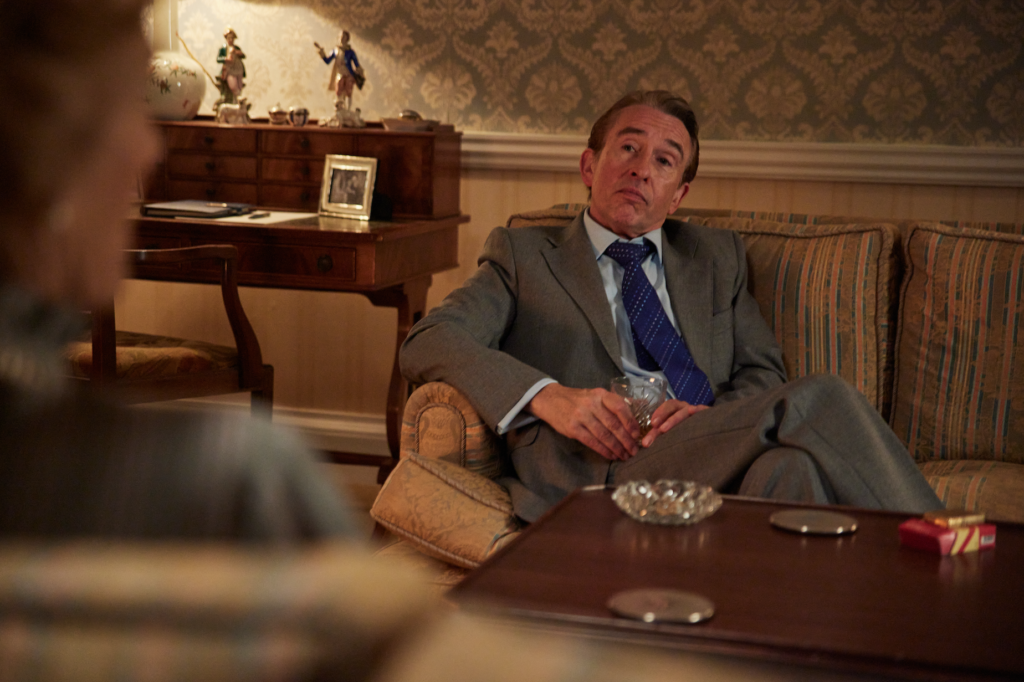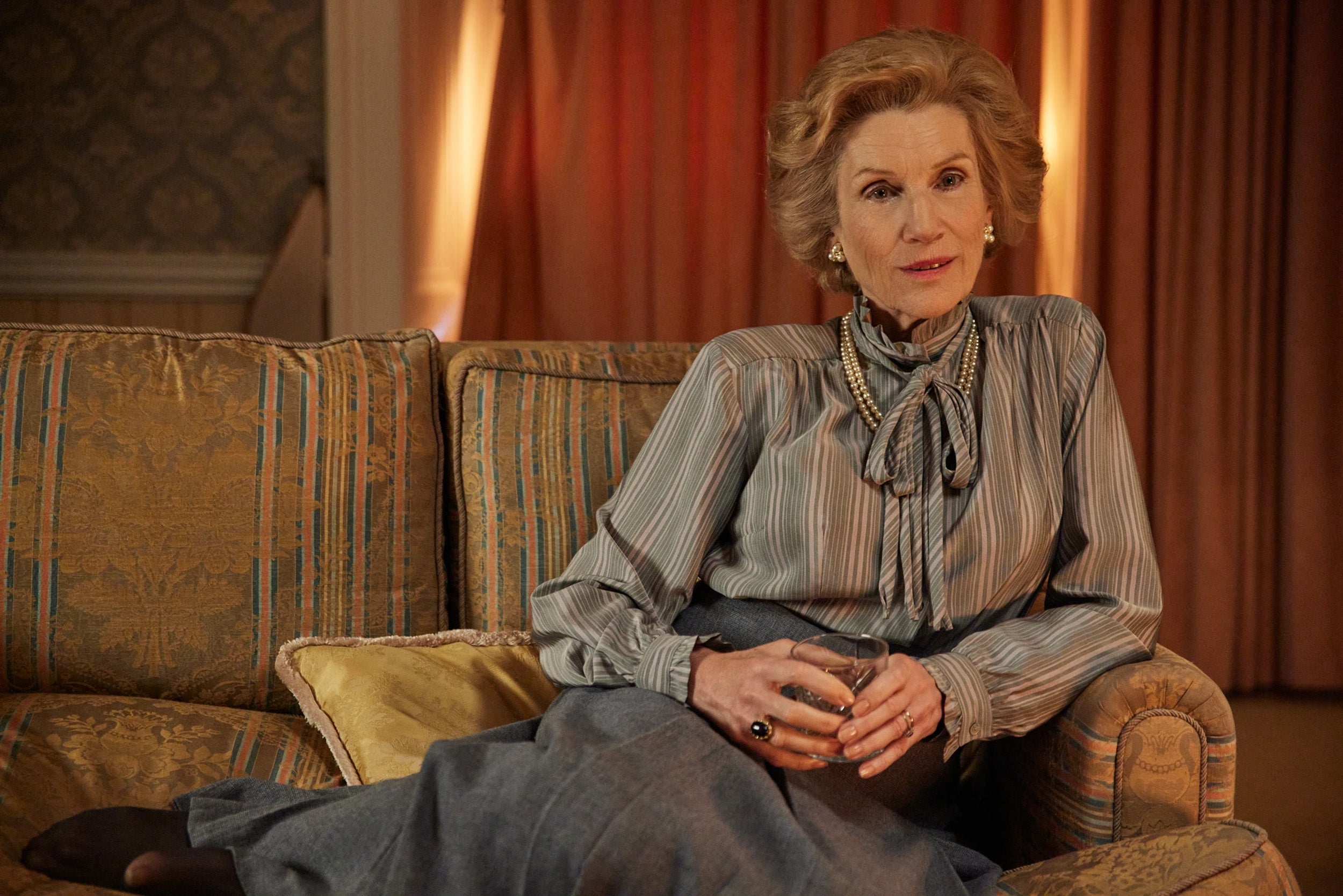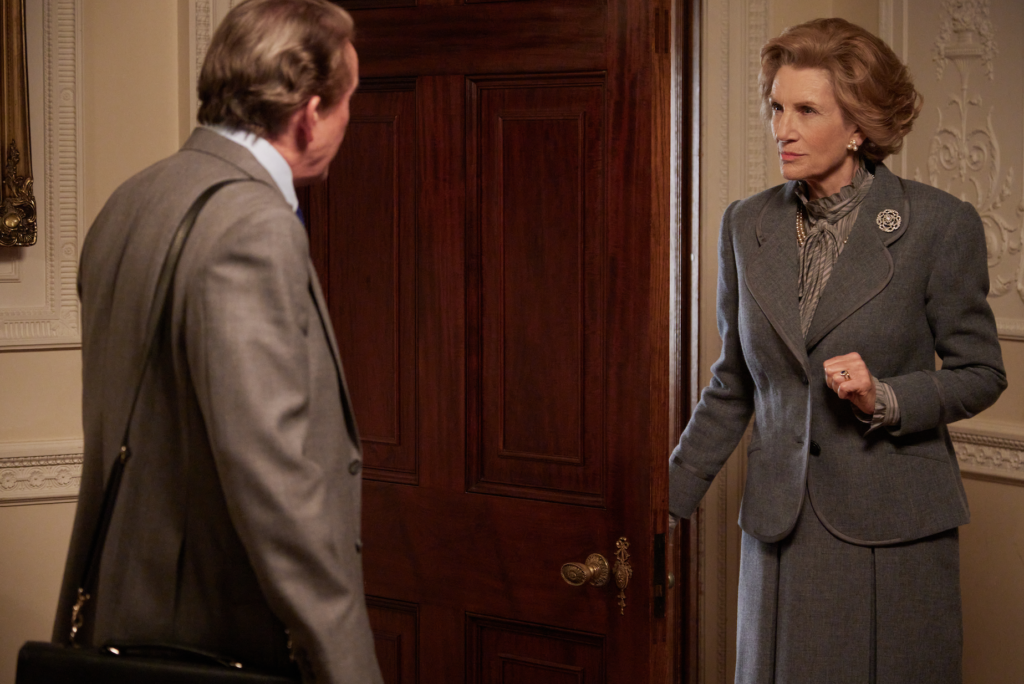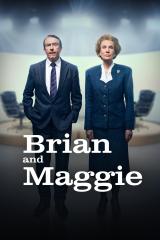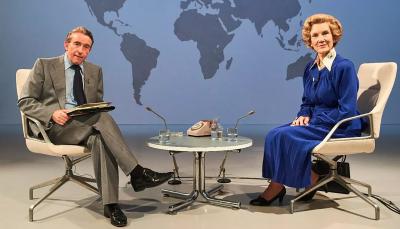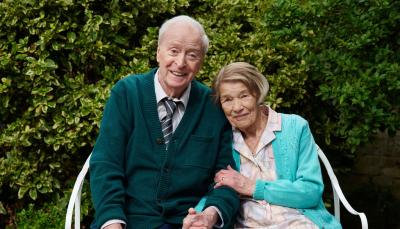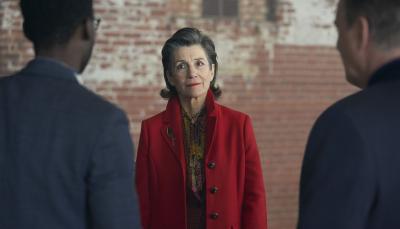The Opening Installment of 'Brian & Maggie' Feels Like an Illicit Affair
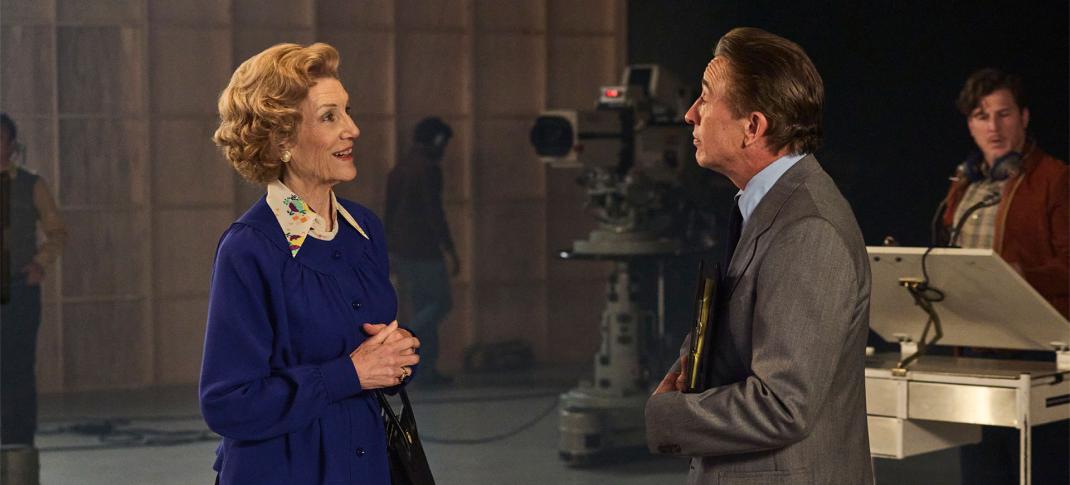
Harriet Walter and Steve Coogan in 'Brian & Maggie'
Ch4/PBS
If you're looking to the new PBS drama Brian & Maggie for a history lesson, you're probably going to be disappointed. That's not a criticism, more of an attempt to set expectations. The latest in a string of prestige dramas that long for a moment when journalism had both genuine teeth and a desire to hold those in positions of power to account for their choices (see also: The Hack, A Very Royal Scandal), Brian & Maggie is nominally about the infamous 1989 television interview between broadcast journalist Brian Walden and U.K. Prime Minister Margaret Thatcher that helped bring about the end of her premiership.
It's also technically about a lot of other things: proximity to power, class politics, cross-aisle political camaraderie, and Thatcher herself, particularly her surprisingly warm relationship with Walden. That it struggles to balance those many competing priorities probably shouldn't surprise anyone, given that this whole drama is only two episodes long.
That the show wants to have something serious to say about journalism, politics, and the state of our public discourse is evident from its opening frames, as title cards declare the televised political interview "a vital part of our democracy" and praise the event it's about to dramatize as a seismic occurence that "made history". Nothing in the 47 or so minutes that follow earns this level of breathless pomposity; however, the script from series creator James Graham (Sherwood) delights in clunky, overly expository dialogue that emphasizes its own importance.
At least in its opening installment, the series has precious little wisdom to impart about journalism or politics. But, as a character study of two working-class climbers, there are moments where it sings.
Much of this first episode is table-setting in the lead-up to the infamous interview we've all tuned in to see (and which clearly won't be happening until the series' second installment). It skims over a lot of history without examining it closely, glossing over the factors that played a key role in Thatcher's rise and the impact her premiership had on the country she was elected to lead. The series also makes the same mistake we've seen in shows like Say Nothing, where it assumes viewers are familiar with many of the background details of her time in office, from the major priorities of her government to the public's reaction to her policies.
But, because it's not really a story about Thatcherism, per se, you can fake your way through it (unlike similar PBS historical dramas like, say, Nolly) because the politics aren't the point.
While Brian & Maggie (or at least its marketing department) may have delusions of being a prestige message show, at its heart, this is a relationship drama. Not in a romantic sense, technically speaking; though the show doesn't bother to do much to interrogate Walden's warm feelings for Thatcher, or why he's willing to bend so many of his personal rules for her (at least until he isn't).
Stars Steve Coogan (....with Alan Partridge) and Harriet Walter (Wolf Hall: The Mirror and the Light) have a combative, prickly sort of chemistry that, in another life, probably could have easily translated to a sort of late-in-life enemies-to-lovers vibe. Instead, Brian Walden and Maggie Thatcher are strange mirrors of one another, overachieving strivers who believe in hard work and the existence of a meritocracy. They've both ended up in vastly different places but feel they have more in common with each other than with their peers.
After an opening sequence that briefly teases the interview we're all tuning into the show to see, the episode begins with both Walden and Thatcher early in their respective careers. He's a disaffected Labour MP making the transition to broadcast journalism, she's the Leader of the Opposition (who has fascinated him for, again, reasons the show never bothers to fully flesh out). He is chosen to lead a long-form political interview program in large part because his boss, David Cox (Tom Mothersdale), thinks his working-class Midlands roots will help him appeal to viewers put off by the posh, blue-blooded individuals who tend to dominate the media. "You sound like our audience," he says.
Thatcher is his first guest, a choice that Walden himself pushes hard for in his initial editorial meetings. The pair hit it off, though their first interview can barely be called such, given that Walden offers so little pushback or context to any of Thatcher's answers. But it's not enough to stop them from doing it again, and various chats between them speed past, montage-style. She appreciates that he takes her seriously and asks her genuine questions. He thinks it's refreshing that she actually engages and wants to answer them. His boss thinks he's too easy on her. Her aide thinks she trusts him too much. Despite their differences (and perhaps because of their similarities), they're charmed by each other, and it all feels a bit like the start of a rom-com, or a very ill-advised affair.
The episode is at its most interesting when it's poking at the foundations of the unorthodox bond between these two. Crossing all sorts of ethical and professional boundaries over the course of the hour, the pair share post-interview drinks, trade stories about imposter syndrome, and bond over their collective outsider status in their chosen fields. She starts nicking phrases from his interviews, and he writes glowing newspaper columns about her strength and indomitable nature.
("In the years to come, great novels will be written about her" is a literal line from a Walden op-ed. Yikes?)
The episode's most uncomfortably interesting moment occurs when Walden fully crosses over to Team Thatcher, helping her pen a campaign speech ahead of the 1983 general election, even as he continues to report on both her campaign and the government to the public at large. Sadly, it's one that Brian & Maggie seems largely uninterested in exploring in any significant way, a choice that's a bit rich coming from a show that pretty much exists to tout the necessary importance of the Fourth Estate. Maybe it's something the second hour will circle back to, but given how much ground this story still needs to cover, it seems unlikely.
It seems safe to say that the real reason to tune into this show is the performances at its center. Coogan, always an excellent mimic, nails many of Walden's real-life mannerisms and speech patterns. But it's Walter who steals the show. She looks almost nothing like the real Maggie Thatcher, but manages to find a perfect balance between steel and vulnerability. It's unlikely that any of us came into this show expecting it to humanize this particular woman — again, much of the inciting idea behind the series has generally seemed to be "Watch the Iron Lady get hers!" But Brian & Maggie treat their most polarizing figure with a careful and deft hand, refusing to demonize her views and acknowledging the misogyny and condescension she was forced to navigate constantly.
While it's not a particularly exciting hour of television, the first half of this series does what it needs to do: Make the relationship at its center believable. Your mileage may vary on whether that's related to the actual story the show's trying to tell or if it's simply the result of Coogan and Walters sparking together, but whatever the reason, it works and imbues the break-up we all know is coming with something close to genuine tension. (In real life, Walden and Thatcher never spoke again following the 1989 interview.)
Next week, the proverbial gloves come off.
Brian & Maggie will conclude on Sunday, October 12, 2025, at 8 p.m. ET on most local PBS stations, the PBS app, and the PBS Masterpiece Channel. Both episodes are currently available for members to stream on PBS Passport.

